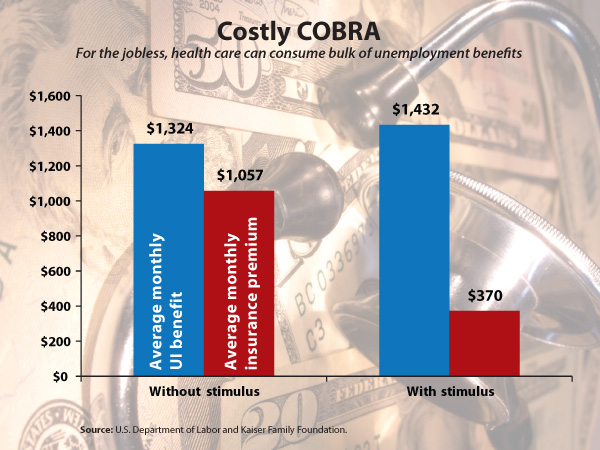By Andrea Orr and Elise Gould
The lack of affordable health care in the United States is especially acute among the country’s growing ranks of unemployed. Thanks to the Consolidated Omnibus Budget Reconciliation Act (COBRA) of 1986, workers who are laid off from their jobs may keep their employer-sponsored insurance — at their own expense — for up to 18 months. Without additional federal supports, these COBRA costs would easily consume the bulk of an individual’s unemployment benefits.

The Department of Labor reports that average weekly unemployment benefits (including the additional $25 per week that was added as part of the economic recovery package) in June were $330, which translates into an average monthly benefit of $1,432. The Kaiser Family Foundation reports that in 2008, the average monthly health care premium for a family was $1,057. An average unemployed person would be spending a hefty 74% of his or her unemployment insurance on premiums for a family health plan, not including the deductibles or co-pays for prescriptions or doctor and hospital visits. For low-income families, it is quite possible their health care costs actually exceed their unemployment benefits.
The American Recovery and Reinvestment Act enacted by Congress and President Obama early this year was intended to ease this burden by subsidizing 65% of individuals’ COBRA costs for up to nine months. This is, however, a temporary measure, and during this time of widespread long-term unemployment, millions of workers will be unemployed for longer than nine months. And even with the 65% subsidy, COBRA costs are still quite high: The subsidy brings the average family health care premium down to $370 per month, or 26% of the average monthly unemployment benefit.
